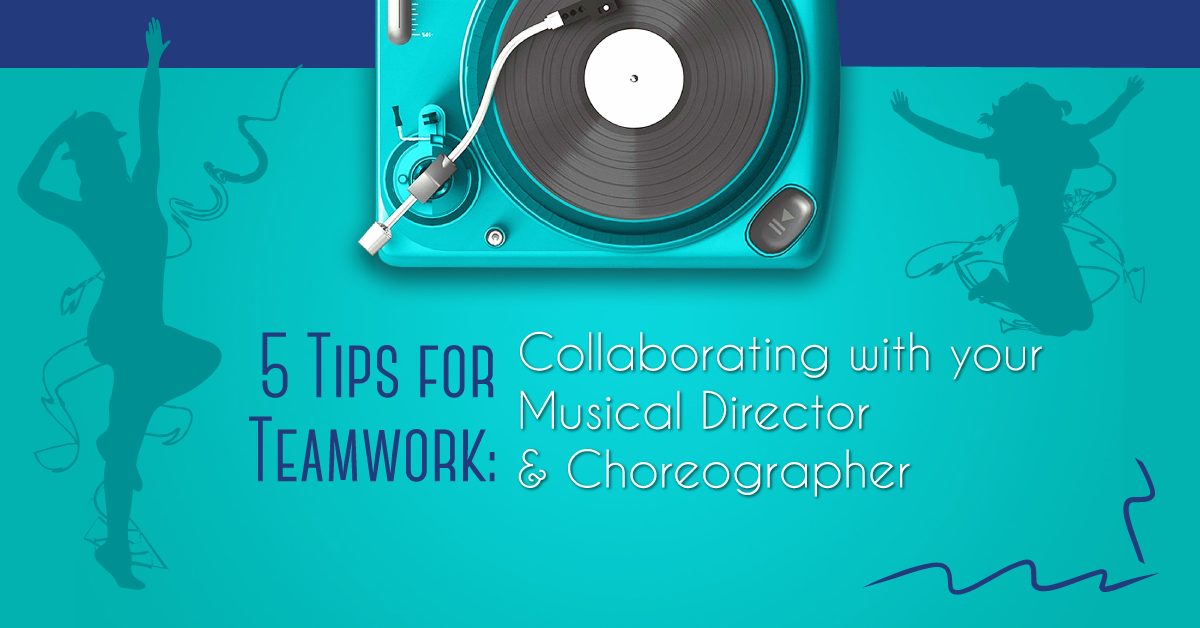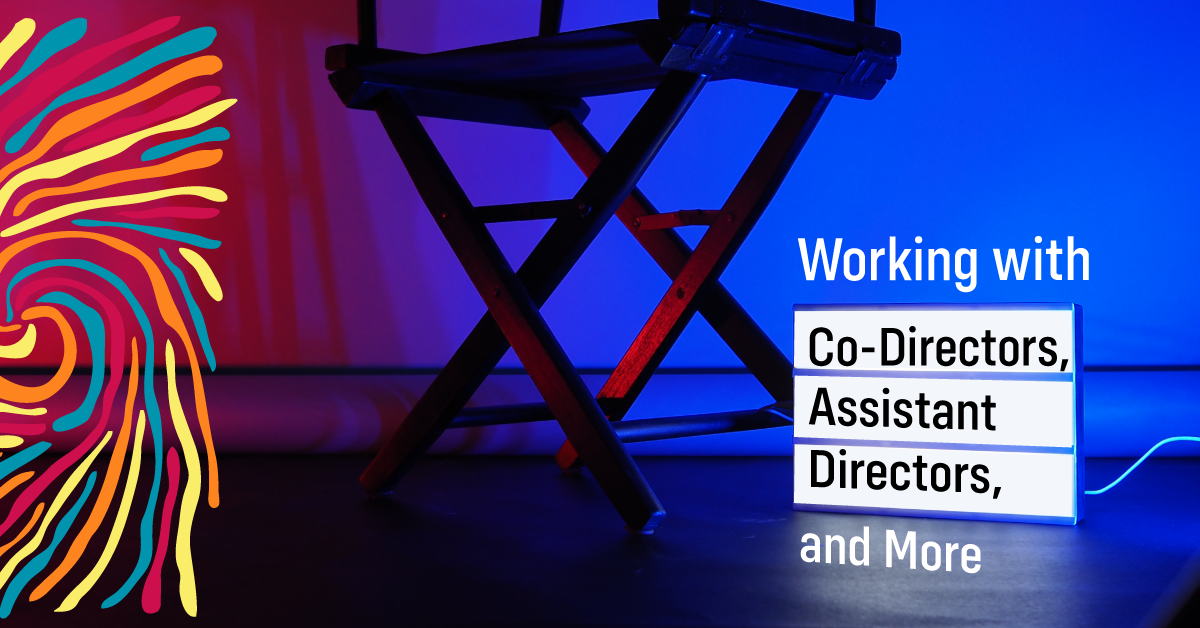Why Productions Need Collaboration
Between the actors, stage management, technical crew, design teams, publicity team, and front-of-house staff, you’re going to need a veritable army of people to make your upcoming school show actually happen. And, while every production needs to have an overall vision and leadership to guide it, the show won’t happen without help, commitment, and teamwork.
Here are five reasons why theatrical productions need collaboration between students, staff, and everyone else involved.
1. You can’t do everything yourself.
Teachers are busy people. And even if you are a do-it-all director, if you do try to do everything yourself, you will burn out. For your own sanity, surround yourself with colleagues you trust and students who are eager to assist. Delegate tasks to them and allow them to do their jobs without hovering or micromanaging. It’s not always easy to hand the reins over to others, but you’re only doing yourself a disservice by not allowing others the chance to contribute and lead.
2. Collaboration provides various opportunities for students to learn.
I strongly encourage opening up production opportunities (both performing and technical/crew roles) to all students at your school, not just those students taking drama classes. Collaborating with lots of different students on productions gives you the chance to meet and work with students whom you might not have gotten the opportunity to get to know otherwise. Who knows, they may end up in your drama program next semester!
As well, it’s a good idea to have more experienced students mentor younger or newer students during productions. This demonstrates your trust in your more experienced students and gives them the opportunity to share their learning and grow their leadership skills. At the same time, this allows your younger or newer students the opportunity to learn from their peers, which may be more welcoming and less intimidating to them than learning from a teacher. This collaboration often leads to new friendships as well!
3. Someone else’s ideas may be just as good, if not better, than yours.
While it’s important to have a clear overall vision for the production and be able to lead your students towards making that vision a reality, it’s also good to be open to different ideas. Whether the ideas come from your students, other teachers, or volunteers, it’s important to consider and employ others’ new and different ideas in your production. It’s easy to say that you want to collaborate and share, but it’s entirely different to actually take others’ suggestions and use them. Check your ego at the door, and give others the opportunity to share in the creation of the production.
4. Collaboration allows students’ voices to be heard and gives them the opportunity to explore in a safe environment.
Continuing on with the point above, allowing students to share their ideas and actually using their ideas in the production can be a real confidence booster for your students. When students are free to explore and try out new theatrical techniques, as well as give ideas about how something might be done (whether that be an acting choice, a lighting effect, a costume suggestion, or so on), they feel that their voices are being heard and that they are making a positive contribution to the production.
While you may not agree with or employ every suggestion, you are still allowing students the chance to be heard. This opens up a conversation and potential for compromise – “We can’t do it that way because of x, but it’s a good idea. Let’s try and see how that works.” Students are given the opportunity to put their own personal handprint on the show, even if it’s in a small way. And they aren’t just blindly following instructions. Rather, they are thinking for themselves, proving their capability, and exercising their creative muscles.
5. Collaboration creates a true feeling of teamwork.
As a director, you are ultimately responsible for the artistic outcome of the production. However, you won’t succeed without the full commitment and buy-in of your students. Allowing and encouraging your students to collaborate inspires ensemble thinking (include link to July 20th article, The Importance of Ensemble Thinking) and group accomplishment – if one person succeeds, we all succeed.
Creating a collaborative atmosphere where students truly feel that they are part of the team (rather than part of a dictatorship ruled by the teacher) makes students want to spend time working on the production and give it their best effort. Students who are happy, engaged, and feel that they are being included and heard are going to get the most out of the experience – and keep coming back for future productions.



